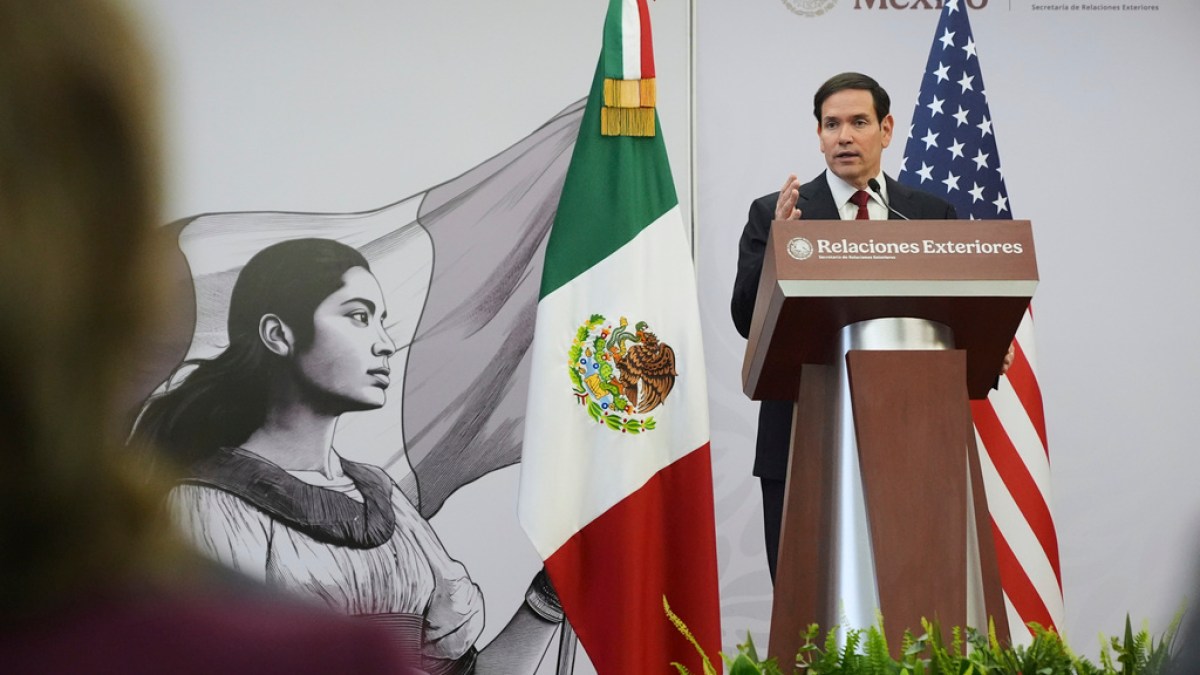Despite concerns about the legality of such attacks and the sovereignty of Latin American countries, Secretary of State Marco Rubio has declared that military attacks on alleged drug traffickers will “happen again.”
Rubio said the US would continue to coordinate security with nations like Mexico during a press conference on Wednesday, but that the US would not be hesitant to take drastic measures on its own.
His remarks came in response to President Donald Trump’s statement that a ship had been blown up in the Caribbean Sea by the US  the day before.
No specifics were provided about the small boat’s identification as a drug-smuggling vessel coming from Venezuela. Apparently, all 11 of the passengers passed away.
Rubio viewed the airstrike as a shift in the US’s ongoing “war on drugs” strategy.
“The United States has long established intelligence that made it possible for us to detach and stop drug boats,” he said. And we succeeded in doing that. Additionally, it is ineffective. Rubio remarked that interdiction is ineffective.
When you blow them up and when you get rid of them, what will stop them?
Rubio then explained that Trump had personally authorized the attack. Rubio claimed that it was heading for the US because it was in the south of the Caribbean Sea at the time of the attack.
We blew it up, according to the president, rather than interdicting it. Rubio added that it will happen again. “Maybe it’s taking place right now. I don’t know”.
Rubio’s visit to Mexico City comes as the Trump administration attempts to work closely with the country, but concerns have risen abroad as a result of its aggressive foreign policy.
Latin American countries have struggled to balance Trump’s increasingly vehement threats with the need for working relationships with the US.
According to experts, international law, which forbids military action on ships sailing through international waters, makes it likely that attacks like Tuesday’s boat bombing are prohibited.
Rubio continued, arguing that the course of action was necessary to safeguard America’s well-being.
You pose an immediate threat to the United States if you’re sailing on a boat full of cocaine or fentanyl, or whatever, according to Rubio.
Armed organizations around the world frequently assumed that these organizations, which are frequently linked to armed or fighting groups, pose a direct threat to US national security. That defense has not previously been used as a pretext for military operations against drug trafficking, which have been deemed criminal.
However, that approach has changed with Trump’s second inauguration.
Trump has pushed for emergency powers since taking office in January based on the idea that there are “invasions” of US-based criminal organizations in Latin America.
Additionally, he has referred to a large number of these organizations as “foreign terrorist organizations.”
Despite being concerned about its legitimacy, reports emerged in August that Trump had signed an order authorizing military strikes against cartels and other drug-smuggling operations. This fueled fears that the US would launch military strikes in Latin America in response to concerns about sovereignty.
Mexico, the US’s southern-most immediate neighbor, has seen a rise in these concerns.
Mexico and the US both issued a joint statement expressing respect for “sustainability and territorial integrity” as a result of Rubio’s visit.
Claudia Sheinbaum, the president of Mexico, has also repeatedly fought to unmask concerns that the Trump administration might act unilaterally on Mexican soil. Trump, by contrast, has not ruled out such a possibility.
According to Al Jazeera’s John Holman, Rubio’s visit was intended to “smooth the feathers” and ease Mexican tensions.
“There was a lot of enthusiastic praise,” she said. However, Holman explained that President Trump has stated repeatedly that the US is “very happy to send its military down into the country to fight drug cartels” despite the fact that he has been saying it before.
“The Mexican foreign minister repeatedly said, “Yes, we’re going to work with the United States,” in a very diplomatic way, saying everyone in their own jurisdiction, really wasn’t touched on in this meeting.”
Rubio and other US officials have, however, emphasized that the US will continue to work with Mexico on security and drug control, despite the US’s pressure to take a more aggressive stance.
On Fox and Friends, Defense Secretary Pete Hegseth stated that “we have assets in the air, assets in the water, and assets on ships because this is a very serious mission for us, and it won’t stop with just this strike.”
As the US militarizes its combativeness of criminal organizations, some nations in the region are skeptical.
In a statement released on Tuesday, Trinidad and Tobago’s Prime Minister Kamla Persad-Bissessar said, “I, along with the majority of the country, am pleased that the US naval deployment is succeeding in their mission.”
Source: Aljazeera

Leave a Reply